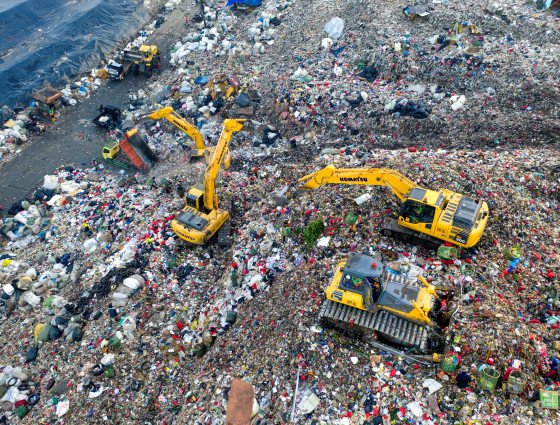
Recycling myths
Read on to find out clear answers to many of the common myths about recycling and waste.
The truth about recycling
Find out about common recycling myths below:
Recycling all goes to landfill or abroad
Not true. Most recycling is processed here in the UK, but any recycling going to other countries is checked by the Environment Agency to make sure it is going to a reputable reprocessor.
Recycling uses more energy than it saves
Not true. Up to 95% less energy is needed to make products using recycled materials. Recycling 1 aluminium can saves enough energy to run a TV for 4 hours.
Rinsing out recyclables is a waste of water and energy
Not true. This stops other recyclables from being contaminated. Reuse the water from your washing up or pop them in the dishwasher if there is space.
You need to understand the recycling symbols and numbers found on plastic items
Not true. The number in a triangle only identifies the type of plastic used to make the item, not whether it can be recycled or not.
All waste just ends up in the same lorry
Not true. All councils in Worcestershire have an "alternate week" collection system, one week your refuse is collected and the next your recycling. They do use the same lorries, but they are thoroughly cleaned out before being used to collect recycling.
Councils are making money out of the materials we recycle
Not true. Some materials have a value, but the cost of collecting and sorting them outweighs the income. Overall, recycling help saves money because other methods of waste disposal are more expensive.
It doesn't matter if I put the wrong things in my green bin, it all gets sorted out anyway
Not true. If you put the wrong things in your recycling, you risk contaminating the other recyclable material. If in doubt, leave it out.
The council will charge you for another recycling bin
Not true. You can have as many recycling bins that you feel you need (within reason). Just contact your local council and ask for one.
Supermarkets are doing nothing to reduce plastic packaging
Not true. most of the major supermarkets are doing their bit, but this takes time. They are making non-plastic alternatives and offering customers more choice when it comes to packaging. However, some packaging is necessary because it extends the shelf life of food.
I can put my recycling in a plastic bag in the bin
Not true. Some households that don't have space for a green bin, are given sacks. At our sorting facility in Norton these bags are split, and the recycling removed. If you put your recycling in a plastic bag and then put the bag in your green bin, they cannot see the contents and may risk getting hurt when opening the sack.
You have an Energy from Waste facility now, surely, it's better to burn the recycling and use it to generate electricity?
Not true. All materials that are recycled are made into something new. Paper, plastics, glass, and metal cans can be recycled repeatedly. It is also more expensive to process material at the Energy from Waste facility than recycle them.
The Energy from Waste facility puts dangerous chemicals into the atmosphere
Not true. The Environment Agency monitors the gases that are created through the combustion process and ensures that strict limits on emissions are adhered to. The "smoke" that you see from the chimney stack is steam, making it more visible on colder days.

 Facebook
Facebook X
X Email
Email WhatsApp
WhatsApp Messenger
Messenger